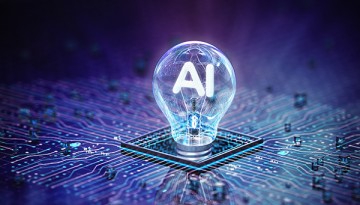The Assessing and Imagining the Impact of Generative AI on Science Symposium will feature diverse experts from across Cornell, academia and industry engaging in discussions of how GenAI is being used in research, and the implications for policy, funding and the public trust.
Cornell AI News
News Category
Filter by Topic
Weill Cornell Launches AI to Advance Medicine Program
In an effort to unify the rapidly expanding set of academic activities investigating artificial intelligence (AI), Weill Cornell Medicine is launching a new AI to Advance Medicine initiative. Encompassing a Dean’s Lecture Series and Dean’s Grant Program, the...
CALL FOR PROPOSALS: Thought Summits on Data Science and AI
Cornell’s Center for Data Science for Enterprise and Society and Cornell’s Artificial Intelligence Initiative are sponsoring a Call for Proposals for THOUGHT SUMMITS, a Cornell forum aimed at identifying and developing inter- and intra- institutional collaborations in the novel areas of Data Science and Artificial Intelligence.
Building a farm data and analytics platform that keeps things private
The Cornell Agricultural Systems Testbed and Demonstration Site is working with the Weatherspoon lab in computer science to create a data pipeline and analytics platform that will allow farmers to aggregate their data for informed decision-making. At the same time, the researchers are ensuring that every farmer’s data will be kept private.
Thorsten Joachims named vice provost for AI strategy
Thorsten Joachims has been named vice provost for artificial intelligence strategy, a newly created position intended to bolster the Cornell AI Initiative. This new position further expands Cornell’s universitywide effort to advance leadership in research and education in AI, while creating, applying and evaluating AI as a tool across the university – from classrooms and laboratories to clinics and university processes. His appointment took effect Jan. 1.
Cornell Tech Launches Pre-College Summer Innovation Intensives for Future Tech Leaders
Cornell Tech will introduce its first Summer Innovation Intensives program in July 2026, offering pre-college students an immersive experience in artificial intelligence, ethics, and entrepreneurship. The three-week program, scheduled for July 13-30 on Cornell Tech’s Roosevelt Island campus, is designed to give students a head start on college-level learning while tackling real-world challenges through technology. Students who are at least 15 years old and have completed their sophomore year of high school by the program start date are encouraged to apply.
$10M gift to Cornell Bowers supports AI advancement
A $10 million gift from Josh Kulkin ’01 to the Cornell Ann S. Bowers College of Computing and Information Sciences will bolster the university’s position as a world leader in foundational artificial intelligence research.
Student draws on experience to transform assistive communication
At 15, Tobias Weinberg lost the ability to speak – now as a Ph.D. student at Cornell Tech, he’s using AI to improve the technologies he and others with speech disabilities rely on to communicate.








